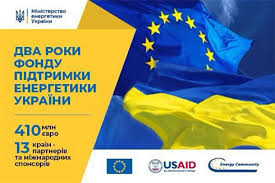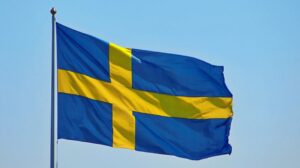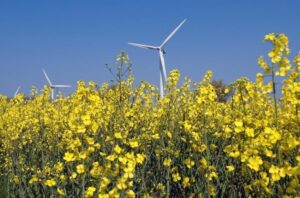
The Energy Support Fund has managed to raise over EUR410m from 13 partner countries and international organizations as of April 9.
“The remaining amount is the announced contributions, which will soon be transferred by the sponsors,” the Ukrainian Energy Ministry said on Tuesday.
As the ministry noted, the special trust of partners has been secured thanks to the system of transparent distribution of funds. In particular, the Ministry of Energy has a working group on humanitarian aid, which considers requests from Ukrainian energy companies to purchase the necessary aid with the Fund’s resources.
The Fund financed the most urgent needs of Ukrainian energy companies, in particular, the purchase of generators, power transformers, circuit breakers, spare parts, technical means, materials, special equipment, fuel, means of physical protection of energy facilities.
“Most of all funds are distributed to meet the urgent needs of energy companies from frontline regions – Kharkiv, Mykolayiv, Sumy, Zaporizhzhya, Kherson, Odessa,” the Ministry of Energy said.

Sweden has contributed EUR25.27 million to the Energy Support Fund of Ukraine, the Ministry of Energy has announced.
“Part of the Swedish contribution has already been paid to provide the necessary assistance to the distribution system operators of the frontline regions of Zaporizhzhia and Mykolaiv, as well as for the needs of the transmission system operator,” the Energy Ministry said in a release following a meeting between its head Herman Halushchenko and Swedish Deputy Prime Minister, Minister of Energy, Business and Industry Abba Bush.
In addition, about EUR 8 million of the Swedish grant is intended to finance the implementation of decentralized renewable energy solutions, including solar panels, batteries, microgrids, and energy efficiency measures for social services and households.
Since March 2022, Ukraine has also received 97 shipments of power equipment from Sweden with a total weight of over 1126 tons, including 222 generators, current and voltage transformers, and other electricity and gas equipment for renewable energy.
“We will continue to help Ukraine in these difficult times of trial by providing assistance to help them recover from the latest hostile attacks. These days, we see Russia using energy as a weapon once again,” Bush said during the meeting, the key topic of which was the continuation of Swedish support for Ukraine in the war against the Russian aggressor, assistance to the Ukrainian energy sector, and strengthening cooperation in nuclear energy and renewable energy.
According to her, the Ukrainian experience in strengthening the resilience and support of the energy system is extremely important and useful for Europe.
According to the Ministry of Energy, the Vice Prime Minister emphasized the minister’s special efforts to maintain contacts with her colleagues, the energy ministers of the EU member states, in developing a policy to strengthen the continent’s energy security.
“The recent attacks on Ukraine’s energy system are a very good indication for us in Europe of how important the stability of the energy system is for the vital activity of our countries. And we are pleased that we are learning from the leadership of Ukraine’s energy sector how to maintain energy system resilience,” Bush emphasized.
“We thank our international partners and Sweden itself for supporting Ukraine’s energy sector with equipment and contributions to the Energy Support Fund. We are assessing the consequences of the recent attacks and will soon compile a list of urgent needs for equipment to carry out restoration work,” Galushchenko said.
As reported by the Ministry of Energy of Ukraine in mid-December 2023, the total amount of sponsors’ commitments to the Energy Support Fund of Ukraine increased to EUR 390 million, with EUR 229 million actually transferred to the Fund’s grid from 18 public and private sector sponsors from different countries.

The Netherlands will invest 100 million euros in the recently established International Foundation for Ukraine (IFU) to finance military equipment for Ukraine, the country’s Defense Ministry said.
According to the ministry’s website, this was announced by Dutch Defense Minister Kaisa Ollongren during a visit to the UK.
The IFU money is being used to purchase equipment directly from manufacturers to ensure its quickest possible delivery to Ukraine.
“If Russia stopped fighting, there would be no war. If Ukraine stopped fighting, there would be no Ukraine. International support for Ukraine remains vital,” the minister said.
The first industry contracts are expected to be signed by the end of this year. The first deliveries are expected in the first half of next year.
In addition to the Netherlands, other participants in the fund are its initiators Great Britain, Denmark and Norway.

Denmark has become the first donor to the Energy Community’s Fund to rebuild war-torn energy infrastructure in Ukraine, Energy Minister Herman Haluschenko has said.
“Sincerely thanks to the first donor, Denmark, for responding to Ukraine’s call for urgent support to the energy sector in these difficult times of war,” Haluschenko was quoted as saying by the press service of the Ministry of Energy in a release on the website on Monday.
The amount of funds sent by Denmark was not specified in the message.
At the same time, the minister called on other countries and international partners to become donors to the Fund, noting that Ukrainian power engineers every day, despite enemy shelling, again and again resume electricity and gas supply.
Director of the Energy Community Secretariat Artur Lorkowski, for his part, assured that the corresponding funds would be sent to Ukraine as soon as possible.
“The Secretariat, together with the Ministry of Energy of Ukraine, will work quickly so that all contributions paid are directed to meet the most important needs of the Ukrainian energy sector,” Lorkowski said, cited by the press service of the Ministry of Energy.
As reported, in early April 2022, the Energy Community created a Fund to rebuild war-torn energy infrastructure in Ukraine, the donors of which should be mainly EU member states, as well as international companies and corporations.